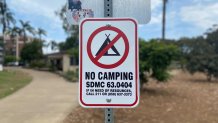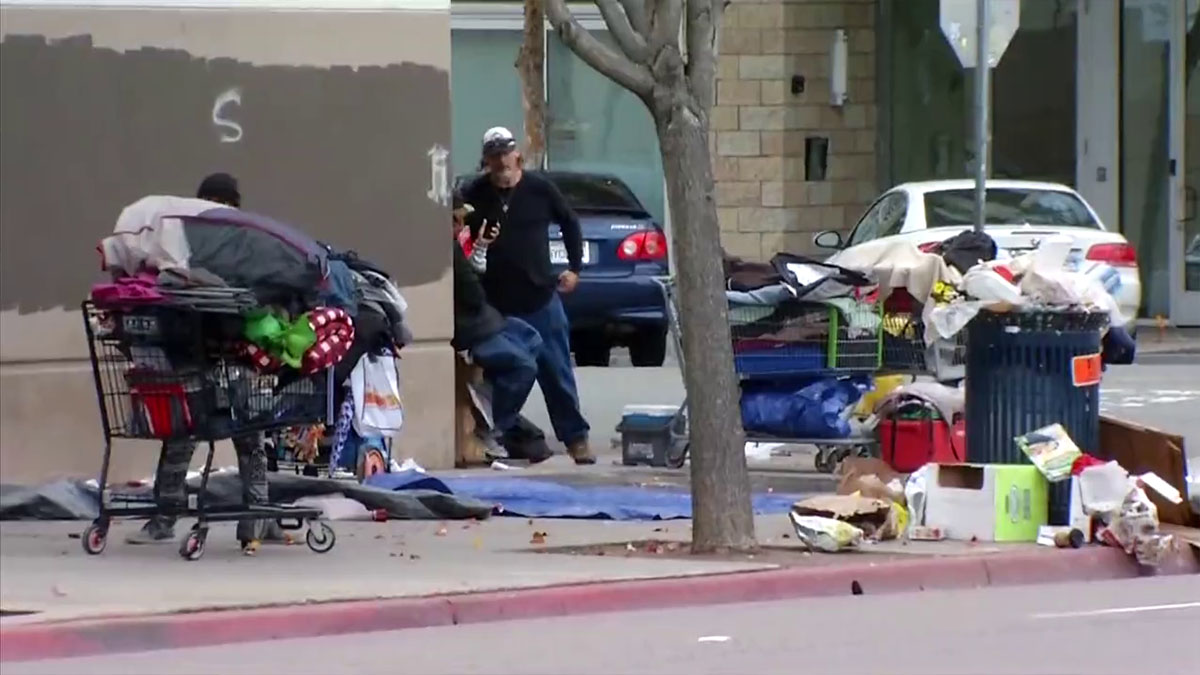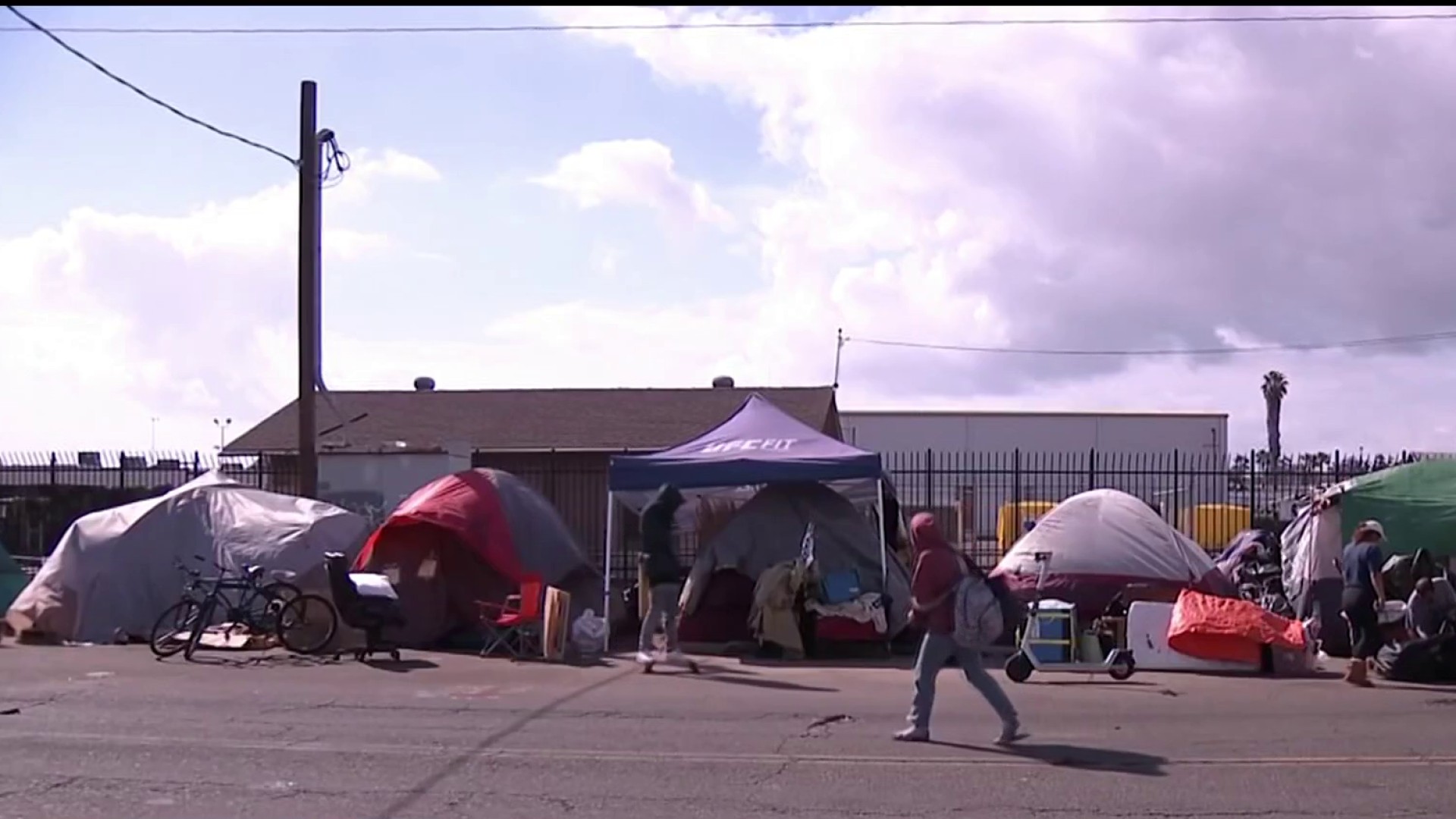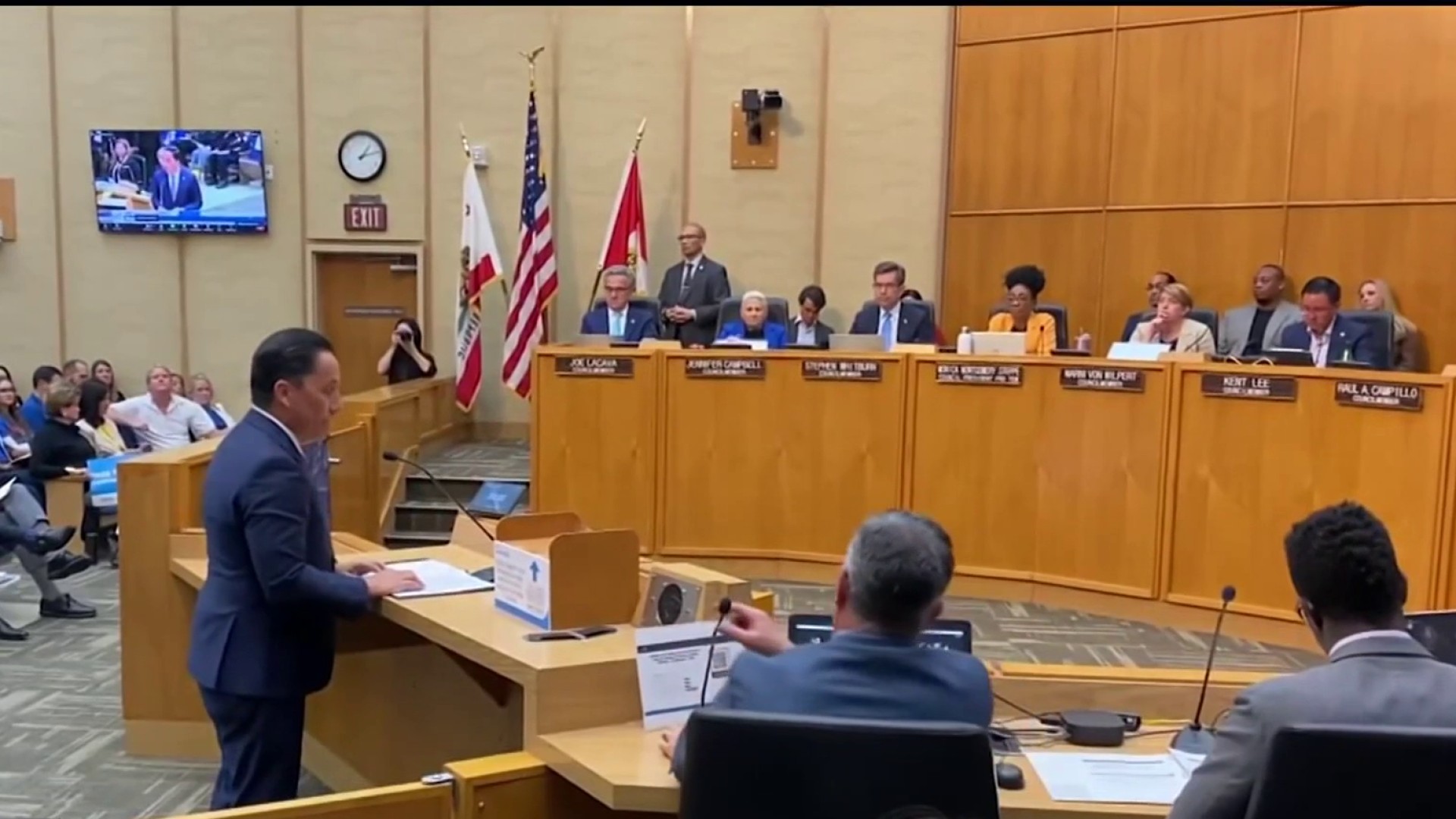The ordinance bans camping:
- Within a two-block radius of schools, homeless shelters and transit hubs
- In any open areas like public parks, canyons and riverbeds — regardless of shelter capacity
- Can be enforced on any city sidewalk if shelter space is available
The city of San Diego's "Unsafe Camping Ordinance" aimed at curbing growing homeless encampments goes into effect Saturday but enforcement won't begin until Monday.
What will the Unsafe Camping Ordinance do in San Diego?
The ordinance bans camping within a two-block radius of schools, homeless shelters and transit hubs, and in any open areas like public parks, canyons and riverbeds, regardless of whether there is shelter capacity. The camping ban can be enforced on any city sidewalk if there is shelter-bed capacity to which police can refer a homeless person.
Get top local stories in San Diego delivered to you every morning. Sign up for NBC San Diego's News Headlines newsletter.
Related content:
Initially, the ordinance will only be enforced at specific schools and parks that have signage that explains the new rule, according to a city spokesperson, who demurred when asked for a list of such locations.
The City has opened a "safe sleeping" site near the intersection of 20th and B Street in downtown to try to increase shelter capacity. Currently there are 80 people staying there in 65 tents. The city spokesperson said that, as of Thursday evening, there were 71 tents available at that location, in addition to 38 emergency shelter beds. When there is shelter capacity and after the ordinance goes into effect, police will be able to enforce the camping ban on any city sidewalk.
What supporters of the ban say
Proponents of the ban say it's helpful for the safety of the people living in the encampments who could be hit by vehicles or contract illnesses, as well as for the people living and working around the encampments, because they block traffic for vehicles and pedestrians on roads and sidewalks.

What critics of the ban say
Critics of the ban, however, say it criminalizes homelessness.
How enforcement will work
Police will use progressive enforcement after Monday, meaning that a person will get two notifications they are in violation of the camping ban. Upon a third police encounter with law enforcement, they could be arrested.
A similar ordinance for encroachment offers people three warnings. During their fourth encounter, they could be arrested.
The city spokesperson emphasized to NBC 7 that if community members see police interacting with a homeless person in an area that doesn't have signage outlining the unsafe camping ordinance, that doesn't mean the officers are doing anything wrong — they could be enforcing a different ordinance, like encroachment.
City Councilman Stephen Whitburn, who represents San Diego's Third District and is the author of the ordinance, released the following statement on Friday:
"As the Unsafe Camping Ordinance takes effect, I encourage unsheltered people to take advantage of our new safe sleeping site or available shelter beds. These options are much safer and healthier than living on sidewalks or in parks. I also look forward to all San Diegans having safer and healthier neighborhoods where public areas are used for their intended purposes. Together, we can improve the quality of life in communities across San Diego.”
What qualifies as "camping" and "encampments"?
So what, exactly, are "camping" and "encampments," as defined in the ordinance? The city sent NBC 7 the following:
"Camp" means to pitch, erect or occupy an encampment or to use camp paraphernalia or both, for the purpose of, or in a way that facilitates, outdoor sheltering for living accommodation purposes or for remaining outdoors overnight.
"Camp paraphernalia" means personal property used to facilitate occupancy of an area and includes personal property typically associated with camping such as tarps, cots, beds, sleeping bags, hammocks, bedding, camp stoves, cooking equipment, buckets and similar equipment, mattresses, couches, dressers or other furniture.
"Encampment" means one or more temporary, makeshift or hand-built structures not intended for long-term continuous occupancy, including tents that are used to shelter one or more persons or their belongings and that are not authorized by the property owner. "Encampment" includes any camp, paraphernalia and personal property associated with or located in or around the structures or tents.




